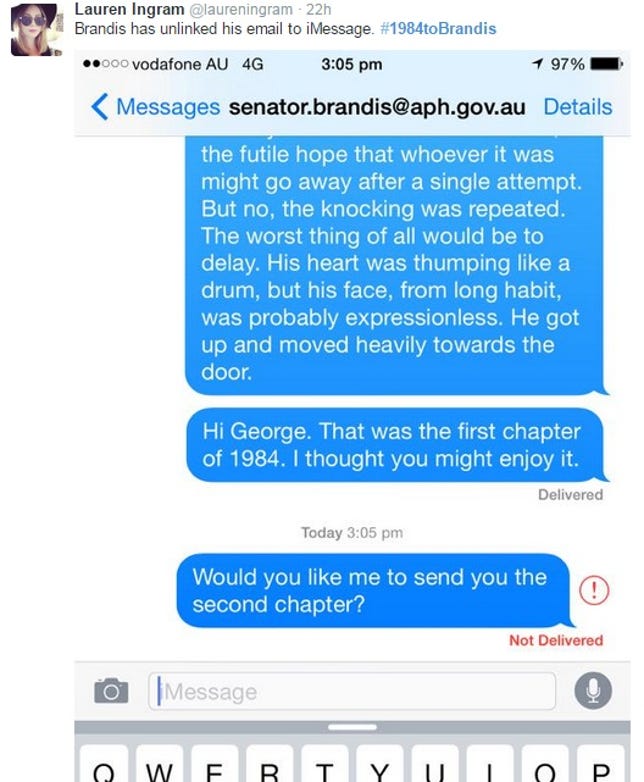
Stefan Postles/Getty Images
As Australians contemplate new data retention laws and the prospect of having their telecommunications data stored for two years, one of the architects of the legislation has revealed he prefers to use messaging services that are explicitly excluded from the bill.
Communications Minister Malcolm Turnbull offered this self-styled “telecom advice” to a group of journalists at Parliament House, saying he preferred “over-the-top” messaging services such as Wickr and WhatsApp as a more secure form of communication than SMS.
WhatsApp is a real-time messaging service that allows groups of people to send text messages “over the top” of an internet connection without SMS charges.
At the other end of the spectrum, Wickr bills itself as a way to “escape the internet.” Described on its website as a “top-secret messenger,” Wickr does not collect personal information and allows users to clean deleted files off their device and set expiry periods on messages — in what it calls a “no-metadata” service.
“Delete geolocation and identifying information from media on the fly,” its advertising pitch reads. “No conversations can be tracked or monitored.”
But the very features that leave these apps outside the scope of data retention laws were praised as security benefits by Mr Turnbull.
“I use Wickr as an application, I use a number of others, I use WhatsApp — because they’re superior over-the-top messaging platforms,” he said. “With all due respect to the telcos, SMS is a very insecure mode of communication.”
However, under the new Data Retention Bill, it is these older communications such as SMS and traditional phone calls that would be subject to metadata retention obligations, while “over-the-top” services are specifically exempt.
The Attorney-General’s Department has stipulated [PDF] that ISPs “are not required to keep records about communications sent or received using third-party communications services running ‘over-the-top’ of their network or service”.
While the legislation has been billed as a way to offer security agencies and law enforcement as much information as possible in order to prosecute crime, Mr Turnbull’s comments highlighted the sheer saturation of apps that keep metadata out of reach of these agencies.
“Millions of people do, hundreds of millions of people use over-the-top applications,” he said.


Screenshot by Claire Reilly/CNET
Among those using over-the-top apps are a number of other ministers, including Attorney-General George Brandis — the other high-ranking MP who has pushed for data retention in Australia.
This week, it was revealed that a number of coalition MPs, including Senator Brandis, had linked their email addresses to iMessage, Apple’s over-the-top messaging service that uses Wi-Fi to share communication across a user’s Apple devices.
What followed was a short-lived internet campaign that saw Australians spamming MPs with emails sent direct to their iPhones as iMessages, some in protest over the data retention laws. In one case, a Twitter user offered a screenshot of the first chapter of the dystopian novel “1984” sent through to Brandis “over many messages.”
This iMessage feature was later turned off.




